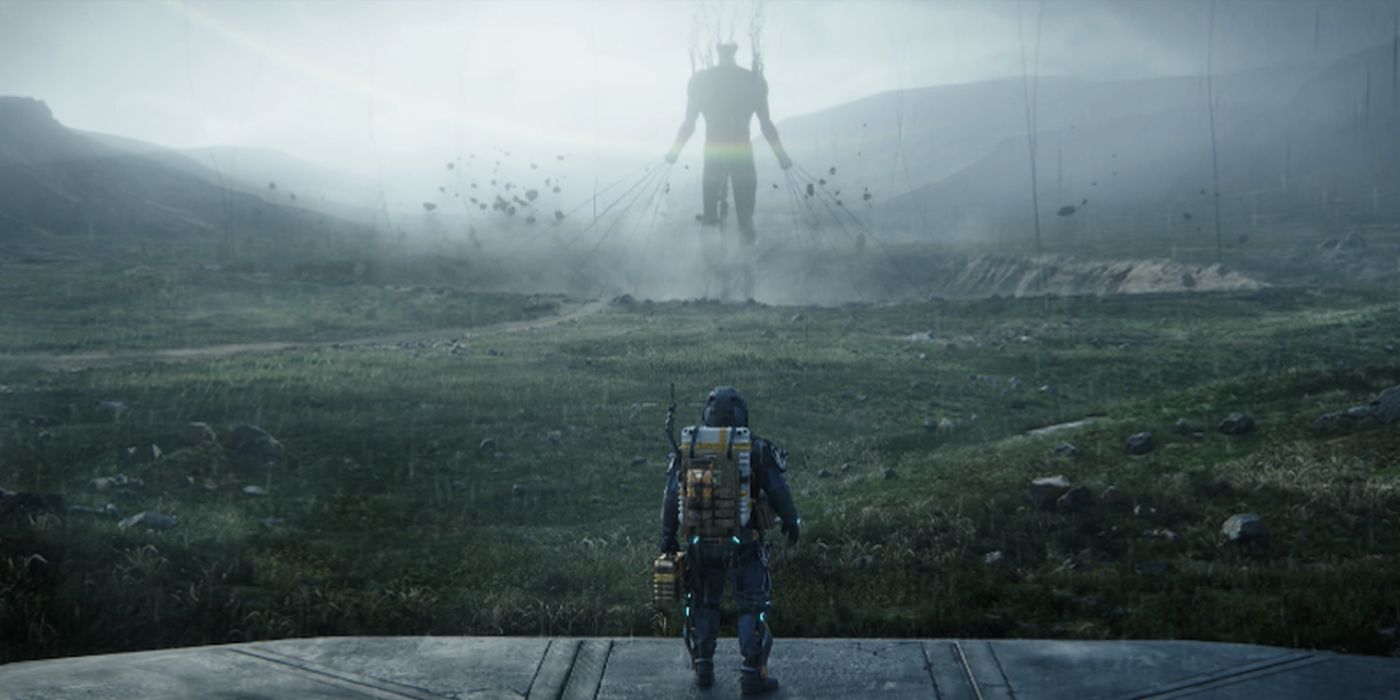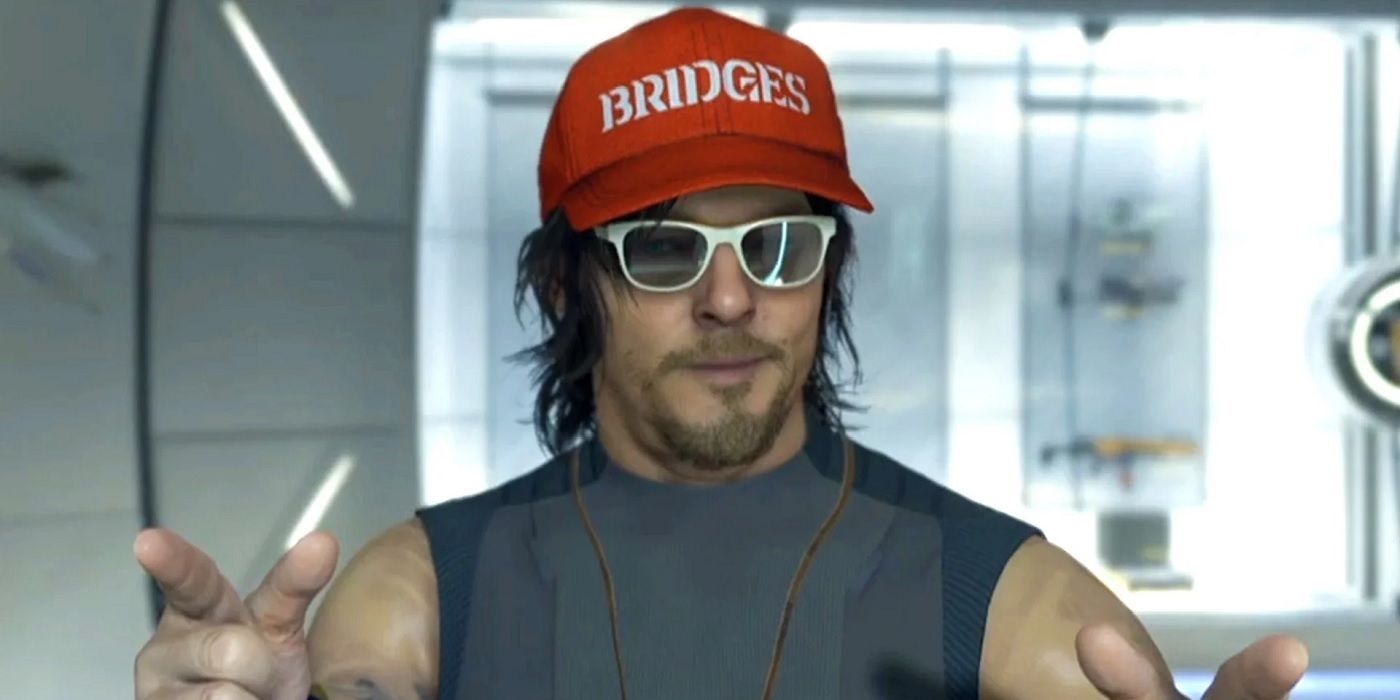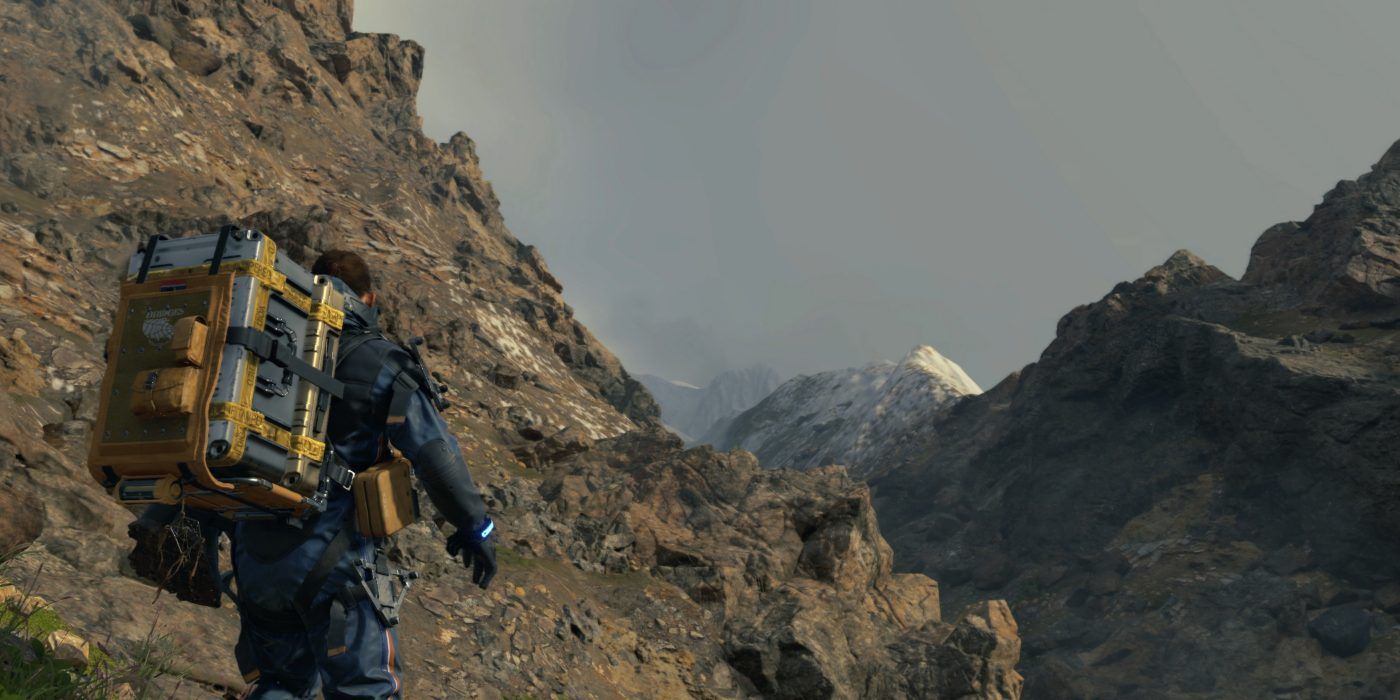When Hideo Kojima stated months before the release of Death Stranding that the game would aspire to innovate a whole new genre, not many people understood exactly what he meant. While long-time Metal Gear fans expected a new riff on the series’ tried and tested set of gameplay systems, Kojima was instead set on developing a title that opted to do something entirely new. Instead of revolutionizing already established gameplay mechanics, Death Stranding consistently sets out to establish new ones altogether, and while that’s paid off in the eyes of many players, it’s also a huge risk.
In fact, it wouldn’t be too much of a stretch to argue that Death Stranding is the riskiest game of this entire generation. On top of its diverse approach to gameplay and storytelling, it’s also a title running on a AAA budget from Sony and being marketed as far as the eye can see. Marvel’s Spiderman, God Of War and The Last Of Us 2 are easy games to sell; they’re big properties with marketable gameplay loops and stories. Death Stranding has always been more of an unknown quantity, and now we have seen all its pieces laid out on the board, it’s clearly an experience that won’t appeal to everyone.
Its story alone is a difficult sell to the mainstream consumer. Within his high-concept tale of a desolate world divided by a cataclysmic, apocalyptic event, Kojima has sewn a pressing social commentary about the fragile state of our own world and our need to reconnect. That is a hard sell to the legions of casual players looking for something to pass the time, but when combining it with the other crazy staples of Kojima’s storytelling, it only becomes a riskier endeavor.
Demonic ghost fetuses, superpowers based on player birthdays, and machinery powered by a baby in a mechanical womb are all just aspects of Kojima’s new world. Even by the director’s regular eccentric standards, a lot of Death Stranding is utterly insane. Kojima even stated that he didn’t fully understand Death Stranding himself, and while the general consensus is that it’s more overtly coherent than his previous projects, there’s no denying it's a "Hideo Kojima Game." Even the minute to minute tone of the game is out there, with ads for AMC's Ride flashing up when Sam’s on the toilet, auteur film directors popping up in significant lead roles, and Norman Reedus downing cans of Monster Energy like he’s ‘Stone Cold’ Steve Austin fresh off hitting a stunner.
Granted, there’s a reason that Kojima is such an iconic figure in the industry. His stories have always been cherished for being exaggerated, dramatic, zany, and distinct, but putting that alongside the likes of Call Of Duty, Pokemon, and Star Wars Jedi: Fallen Order as the big fall titles to close out this year was an undeniably bold play.
That’s without even mentioning the gameplay, which is unlike anything else on the AAA market. In a recent interview about the split review scores for Death Stranding, Kojima claimed that, "...in America there are a lot of FPS fans, maybe those fans are saying this is like a different game and are not rating it very high.” Of course, whether or not that affected the review scores or American audiences specifically, he has a point. Shooters are the dominant genre in mainstream video games, and Death Stranding is certainly not one.
For starters, combat is kept to an absolute minimum. The core of Death Stranding’s gameplay concerns making deliveries and reconnecting different areas of a large and expansive world, seeing the player brave rough terrain, build tools to evade hazardous elements, and avoid damaging their cargo. In essence, it’s an apocalyptic post-man simulator. Although players build an arsenal of new traversal methods and tools, the gameplay loop remains the same throughout.
When the player does come across enemies in the wilderness, combat encounters are short-lived. They'll sneak past some horrifying monsters and fight enemy “Mules” that pop up in the wilderness, but the opponent players faces most frequently is the environment itself. Rocky terrain will make Sam slip and damage his delivery, a type of hazardous, time-manipulating rain present in the world ages his packages, and rivers can easily sweep him downstream with one wrong move. As Kojima says, this is not the kind of game that can rival the high-octane gunfights of Modern Warfare. It’s an experience about patience and atmosphere, and completely contrasts the action-heavy titles that dominate the charts each and every year.
The takeaway here is that Death Stranding was one hell of a calculated risk from Sony. Of course, Hideo Kojima is an eccentric and lovable figure that holds a lot of weight in the world of video games, but without the legacy of Metal Gear behind his new outing, there’s no doubting that it had every reason to flop. The story is off the wall, the gameplay is reserved, and every decision Kojima elected to make has some form of political message following closely behind it. Yet, Sony saw something in this surreal, post-apocalyptic adventure, and, low and behold, the game has done exceptionally well, becoming the most successful new IP launch this generation.
Love or hate Kojima’s crazy vision, Death Stranding’s full backing from Sony and subsequent triumph is nothing but positive for the gaming industry. For a medium that has long been dominated by major annual franchises and the same small handful of genres, the presence of a AAA game that attempts to try something wholly new is pretty rare. Death Stranding may not be exactly to everyone's taste, but what’s important to remember is that the game is so divisive because it’s such a unique idea.
Evolution is vital to all forms of entertainment, and if there’s one thing that Death Stranding’s undeniably risky release is trying to accomplish, it’s breaking the status quo. Whether it revolutionizes the industry remains to be seen, but if there’s one thing to commend Kojima and Sony on, it’s coming at the AAA market with a wildly new idea and the audacity to back it up.
Death Stranding is available now on PS4, with a PC release coming in Summer 2020.



